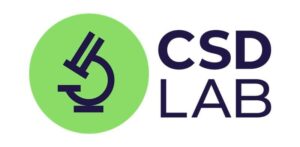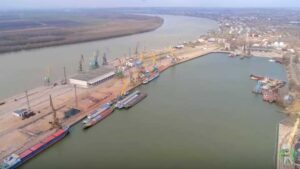
CSD LAB Medical Laboratory creates the future of laboratory diagnostics in Ukraine and develops domestic medicine by introducing the most advanced laboratory research methods and offering profitable cooperation formats for medical businesses.
Full laboratory outsourcing for medical institutions of any form of ownership.
We perform more than 1500 tests, from routine blood tests to high-tech molecular profiling, and provide all the necessary services for medical institutions to make cooperation convenient. Test results are provided in accordance with international standards and protocols.
Medical and laboratory co-brand partnership.
An effective format of cooperation for existing medical businesses aimed at synergizing medical and laboratory services to develop and expand their business. The format of cooperation is based on the opening of a partner laboratory office – a manipulation room where biological material is collected for laboratory tests.
CSD LAB, in turn, provides comprehensive technical, marketing, training and information support to the partner.
Development of franchised laboratory offices.
We offer entrepreneurs and businessmen to invest in a profitable franchise model. We provide our partners with full support at all stages of the launch, as well as during the operation of the CSD LAB laboratory office.
Read more about services and support for partners on the website, leave a request and choose to cooperate with laboratory market experts to develop your business.

The Business Activity Expectations Index (BAEI), calculated by the National Bank of Ukraine (NBU), rose to 45 in February from 37.5 in January (index values from 0 to 100) and continued to remain below the neutral level (50), according to a survey of enterprises published by the NBU on Wednesday.
“In February 2023, the BAEI was 45.0, up from 37.5 in January 2023. In February, companies significantly softened their negative expectations for their economic performance. Economic activity is gradually reviving across all sectors, apart from the construction sector,” the central bank said, commenting on the results of the index.
As the National Bank said, the revival of companies is being held back the most by power shortages, higher production costs because of purchases of uninterruptible power supplies and fuel, and depressed consumer demand.
The NBU said that companies markedly improved their views about their trade turnover, purchases of goods for sale, and inventories/stocks of goods for sale.
In addition, respondents remained downbeat about their total staff numbers, the DI being 43.2, down from 44.5 in January.
At the same time, expectations of both growth in purchase prices and the cost of contractors’ services, as well as prices/tariffs for own products/services, softened.
The National Bank said that the gradual revival of power supply and purchases of uninterruptible power supplies softened the pessimistic expectations of industrial companies in February, as the sector’s DI moved to 47.2, up from 40.6 in January 2023.
“Respondents declared intentions to step up production (for the first time since October 2022), while also expecting an increase in the number of new export orders for products (for the first time since February 2022), the DIs being 50.7 and 50.4 respectively, up from 34.0 and 39.6 in January. While remaining negative, respondents’ expectations for the number of new orders for products improved noticeably, the DI being 48.6, up from 38.0 in January,” the NBU said, describing the situation in the industry.
Respondents markedly improved their views about their trade turnover and the amount of goods purchased for sale, the DIs being 47.4 and 46.8 respectively, compared to 21.6 and 23.7 in January.
“Respondents expected a decrease in their inventories/stocks of goods for sale, the DI being 51.1, down from 61.9 in January. Companies reported weaker intentions to cut their trade margins, the DI being 46.3, up from 39.2 in January. Respondents slightly softened their expectations of a rise in purchase prices, the DI being 30.0, up from 24.7 in January. At the same time, companies expected the price of goods purchased for sale to rise at a faster pace, the DI being 61.1, up from 54.6 in January,” the NBU added.
Services companies continued to report a gloomy economic outlook, the DI being 43.2 in February, up from 37.2 in January. Respondents significantly softened their negative expectations for the amount of services provided, the number of new orders, and the amount of services that are being provided, the DIs being 43.8, 42.6 and 46.9 respectively, compared to 35.2, 34.4 and 38.8 in January.
“With less strong expectations of a rise in purchase prices, companies reported weaker intentions to raise their selling prices, the DIs being 23.8 and 58.6 respectively, compared to 18.4 and 60.4 in January,” the regulator said.
Construction companies reported the most guarded views about their economic performance on the back of seasonal factor, consumers’ weak purchasing power and power shortages, the DI being 33.5 in February, down from 34.5 in January. Companies worsened their negative expectations of the amount of construction work done, the DI being 28.6, down from 30.0 in January. At the same time, respondents expected a drop in the number of new orders and in purchases of raw materials and supplies, the DIs being 28.6 and 31.0 respectively, compared to 27.5 and 25.0 in January.

American business has every opportunity to take leading positions in restoring Ukraine’s economy and infrastructure right now, Ukrainian President Volodymyr Zelenskyy said in a video address to members of the National Association of US Manufacturers.
As the head of state noted, participation in the reconstruction of Ukraine after the hostilities will give an extraordinary moral advantage to all businesses. At the same time, according to him, businesses that help in one way or another the Russian tyranny, will not be able to avoid problems and reputational crisis.
“American business is well positioned to take the lead in both rebuilding the Ukrainian economy and infrastructure and in showing the world that it is human nature to serve precisely worthy ends, and that this gives and always will give the greatest result. Ukrainian life after this war will inevitably get a fresh start,” Zelensky said.
He stressed that Ukraine now needs to restore hundreds of industrial, infrastructure and social facilities, residential buildings.
“Entire cities, industries, productions. This is a colossal task. But realistic. Ukraine is interested in projects to create a full production cycle in titanium, lithium, aluminum production, ferrous metallurgy … We need to rebuild the economy and energy on new security principles. It is in Ukraine that we will combine green transformation with security transformation and set an example for the same transformation in other countries”, Zelensky said.
He also said that mechanical engineering, agro-processing, weapons production, including modern drones, IT, transportation and infrastructure, localization of business in Ukraine and convenient logistics to other markets from Ukraine, and human capital “are not just investment opportunities and growth, but a wide space for American victories.”
“I urge you to prepare for these victories now and come to Ukraine now so that when we return the world, your hard work will already be producing results,” the president concluded.
The National Association of Manufacturers is one of the largest associations of manufacturers in the American business world which represents large and small manufacturers from all branches of industry in all 50 states of the United States. The association now has about 14,000 members.

Ukrainian President Volodymyr Zelensky notes the acuteness of the problem of humanitarian demining and announces simplifications for business in dozens of directions.
“The agricultural sector is a very acute issue of humanitarian demining of land. At the level of the Cabinet of Ministers an interdepartmental working group has been created to ensure the implementation of this activity – clearing soil of mines and unexploded ordnance,” he said in a video message on Wednesday.
“Held an economic meeting today on preparations for spring. A lot of issues that relate to Ukraine’s economic recovery, creating economic opportunities for our people, industries,” he said.
According to Zelensky, “Businesses will get simplifications in dozens of ways. This applies to various bureaucratic permits and licenses. Steps are also being prepared to create jobs. Every job is an aid to our resilience and a way for our people to come back to Ukraine.”

Port of Reni for the first time since the independence of Ukraine has attracted a new cargo flow – citrus fruits from Egypt, which in peacetime went through the larger ports of “Big Odessa”, the Administration of Sea Ports of Ukraine (AMPU) reported on Facebook.
“Last week a refrigerated vessel “ZEINAB”, equipped with enhanced ventilation and refrigeration units for the transportation of perishable goods, arrived at the port of Reni,” AMPU said in a statement.
In particular, 519.9 tons of fruit were delivered from Egypt: 150.3 tons of oranges, 169.4 tons of pomegranates, 31.05 tons of lemons and 169 tons of tangerines.
AMPU specified that citrus fruits were traditionally transshipped by Chornomorsk and Odessa ports.
The leader among them was the port “Chernomorsk”, which transshipped 253 thousand tons of citrus in the last five years: in 2018 – 83.6 thousand tons, in 2019 – 74.1 thousand tons, in 2020 – 43 thousand tons, in 2021 – 35.5 thousand tons and in 2022 – 16.8 thousand tons.
Port “Odessa” during the same period transshipped 134.2 thousand tons of citrus: in 2018 – 45.4 thousand tons, in 2019 – 40.4 thousand tons, in 2020 – 26.5 thousand tons, in 2021 – 14.3 thousand tons and in 2022 – 7.6 thousand tons.
AMPU reminded that now the ports of Greater Odessa work only within the framework of the “grain initiative”, so the cargo owners are forced to seek other ways to deliver citrus to consumers.
Earlier analytical project “Club of Experts” analyzed in detail the trade and economic cooperation between Ukraine and Egypt, see in detail in the video:
ATIA_VALID, BUSINESS, CLUB_EXPERTS, CLUB_EXPORTERS, EGYPT, EXPORT, GOODS, IMPORT, LITVINOVA, TRADE, UKRAINE, URAKIN

In the next video YouTube-channel of the analytical center “Club of experts” the prospects of trade and economic relations between Ukraine and Egypt were considered.
As the founder of the Club of Experts Maxim Urakin emphasized, before the war Egypt was the most favorable trade partner for Ukraine, the trade surplus with which amounted to almost 2 billion U.S. dollars. Grain and metallurgical products were the main Ukrainian goods at the Egyptian market.
At the same time, in the first months of the war, the Russian blockade of maritime communications in the Black Sea limited Ukrainian exports to Africa and, above all, to Egypt. The grain agreement improved the situation, but only with regard to agricultural exports. In order not to lose the Egyptian market, the Ukrainian companies have to adapt to the current situation now in order not to make additional efforts after the war.
According to the President of the Ukrainian Exporters Club Eugenia Litvinova, the Ukrainian producers should pay attention to the Egyptian market of dairy products in the first place. In this case, it is necessary to take into account the separation of Egyptian groups of goods for wholesale and retail trade while creating favorable conditions for imports. Also, according to her, the demand in Egypt is for canned and dried fruits, confectionery, chocolate, oils, fats, mineral water, as well as crockery, various cutlery, baths, showers, sinks, building materials and other goods for the retail trade.
“I want to draw attention to the fact that all Ukrainian exporters who want to trade with Egypt, must be registered in the general administration to control exports and imports. After that it is possible to establish logistics through rail and road ways, taking into account the temporary inaccessibility of the port of Odessa”, – she explained.
Besides, Yevgeniya Litvinova noticed that since March of the last year, Egypt obliged Ukraine to use the letter of credit for many groups of goods that leads to rise in price of transactions from 0,2 to 0,5%. This factor, according to the expert, will also directly affect trade and its final results.
“If we talk about advice to our small and medium-sized businesses when entering the Egyptian market, first you need to understand what exports are, if you have not previously been involved in this process. Then you should analyze in which cases it is profitable to open a Ukrainian enterprise in Egypt to work, and in which cases you do not always need to do it and not always profitable. Finally, the third tip – go through the registration. At least look at how to pass authorization, registration through a single window in Egypt. I draw your attention to the fact that your brand should be registered at least in Ukraine before you start to pass this registration in Egypt, “- summed up Eugenia.
In turn, the head of the Egyptian diaspora in Ukraine, Dr. Atia Walid noticed that in recent years Egyptian-Ukrainian trade relations have been intensively developed and our country has been invited to participate in major infrastructure projects, which are now being implemented by the Egyptian authorities.
“Back in 2021 Egypt discussed with the Ukrainian government investment in the special economic zone of the Suez Canal. That is, the Egyptian economic policy is primarily aimed at encouraging investment in the country’s economy. Egypt, of course, is interested in cooperation with Ukrainian companies from the point of view of opening joint ventures on its territory, which can well be realized today, despite the war. I think it is quite realistic for Ukrainian companies to open branches there, if they are interested in the sales market. Egypt is ready to facilitate this,” stressed the representative of Egypt.
In his opinion, our suppliers should work more actively both with the Egyptian embassy in Kiev and the Ukrainian embassy in Cairo. This will facilitate the passage of bureaucratic procedures and reduce the likelihood of becoming victims of fraud.
“Ukrainian businessmen should check with the Egyptian embassy or the Chamber of Commerce the authenticity of the documents of those organizations with which they cooperate. And only after that, conclude a contract according to all international rules. You should not believe the promises and pretty eyes, and do not forget the basics of doing business in the field of export-import. I wish all businessmen in Egypt and in Ukraine only success,” said Dr. Atia Walid.
See more details in the video:
You can subscribe to the Club of Experts channel by following the link:
ATIA_VALID, BUSINESS, CLUB_EXPERTS, CLUB_EXPORTERS, EGYPT, EXPORT, GOODS, IMPORT, LITVINOVA, TRADE, UKRAINE, URAKIN